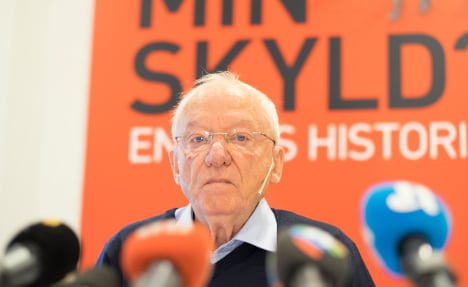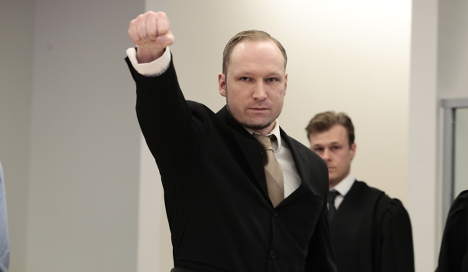The revelations came at a press conference in Oslo for Jens Breivik's new book, his story about raising and knowing Anders.
ANDERS BEHRING BREIVIK
Father warns Breivik ‘more extreme than ever’
Jens Breivik, the father of mass killer Anders Behring Breivik, revealed on Thursday his son is becoming more and more extreme in prison and fears he may never see him again.
Published: 18 September 2014 13:20 CEST

Jens Breivik at the press conference for the launch of his new book "Min skyld?". Photo: Torstein Bøe / NTB scanpix
“Min skyld? En fars historie” (“My fault? A Father's Story”) is Jens's story to convey his truth about who he really was amid incorrect accusations.
Breivik senior was keen to state this is not a book about the July 22nd massacre, but a father's defence of the relationship between himself, his son and Anders Behring Breivik's mother.
Jens said to NTB: “Quite a lot of [what has been said about me] is speculation, half-truths and fiction. To avoid making it stand as the final facts and truth, I have chosen to tell my story.”
While writing the book, Jens tried to visit his son in prison in Skien last autumn. However, he received a long letter from Anders, asking his father to join his political viewpoints and become a fascist before they meet. His father regarded the letter as cold and formal and was shocked and hurt.
Jens Breivik said: “The letter scared me and still scares me. He just becomes more and more extreme, and maybe he becomes more dangerous as well.”
The 79-year-old claims he does not know why his son became a terrorist or if how he was raised can explain Norway's worst mass murderer.
Jens Breivik was a diplomat who divorced from Wenche Behring Breivik when Anders was one-year-old. Father and son only met annually from then on and had no contact after Anders was 16-years-old.
In 1983, the father attempted to take over custody for Anders, who was at the time 4-years-old. The move was in reaction to the Norwegian child care authorities alerting him about his child's conditions at home with the mother. The court in the end did not support Jens taking parental control. Jens has not seen Anders for 19 years.
Jens Breivik reflected: “There are many children growing up with only one parent who do not become terrorists. The fact that [Anders] grew up with a bad relationship with me, does not explain what he did.”
“I have to continue to live even though I'm the father of a mass murderer. I can never forget what happened. It always stresses me.”
Url copied to clipboard!


 Please whitelist us to continue reading.
Please whitelist us to continue reading.
Member comments